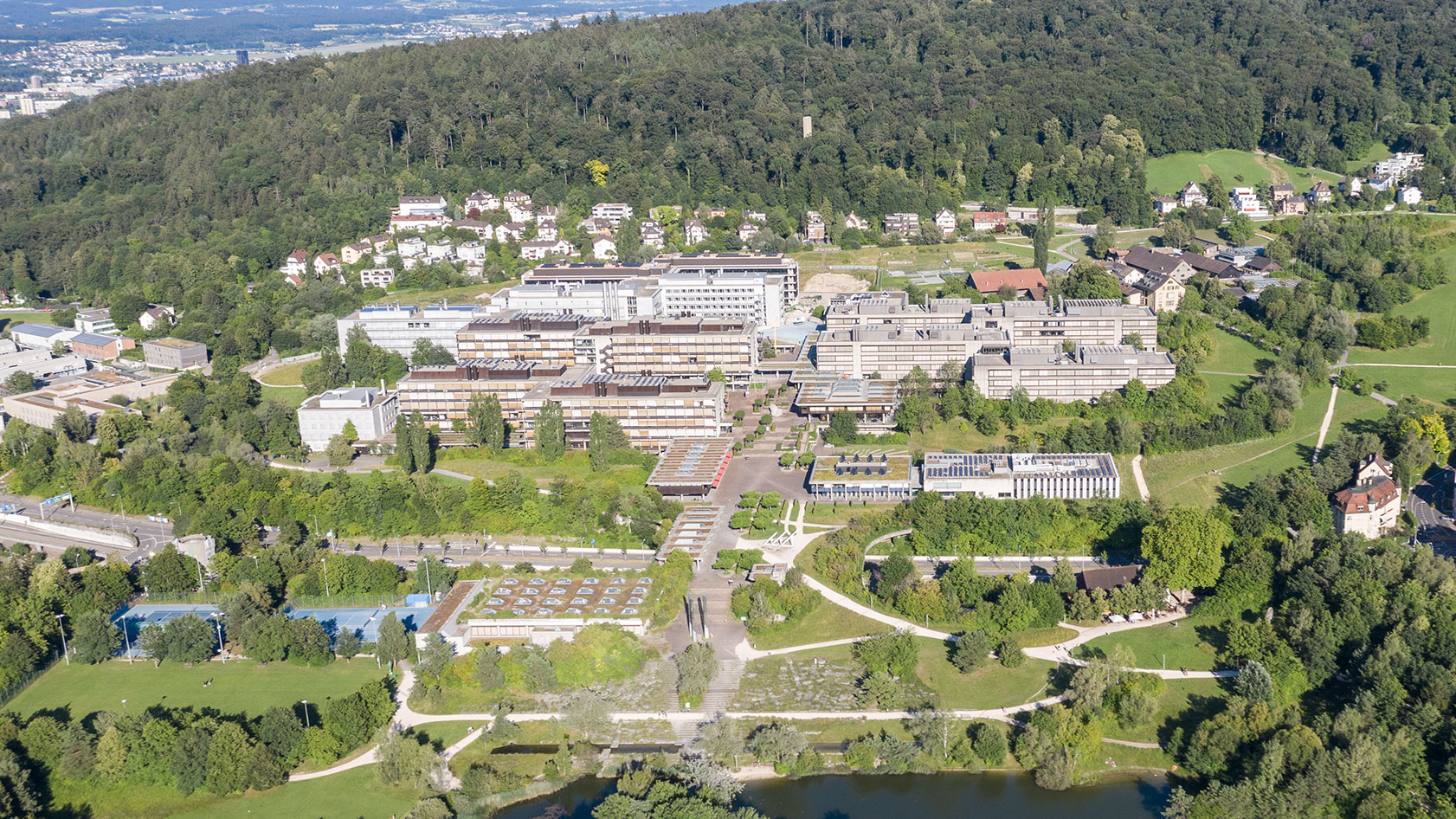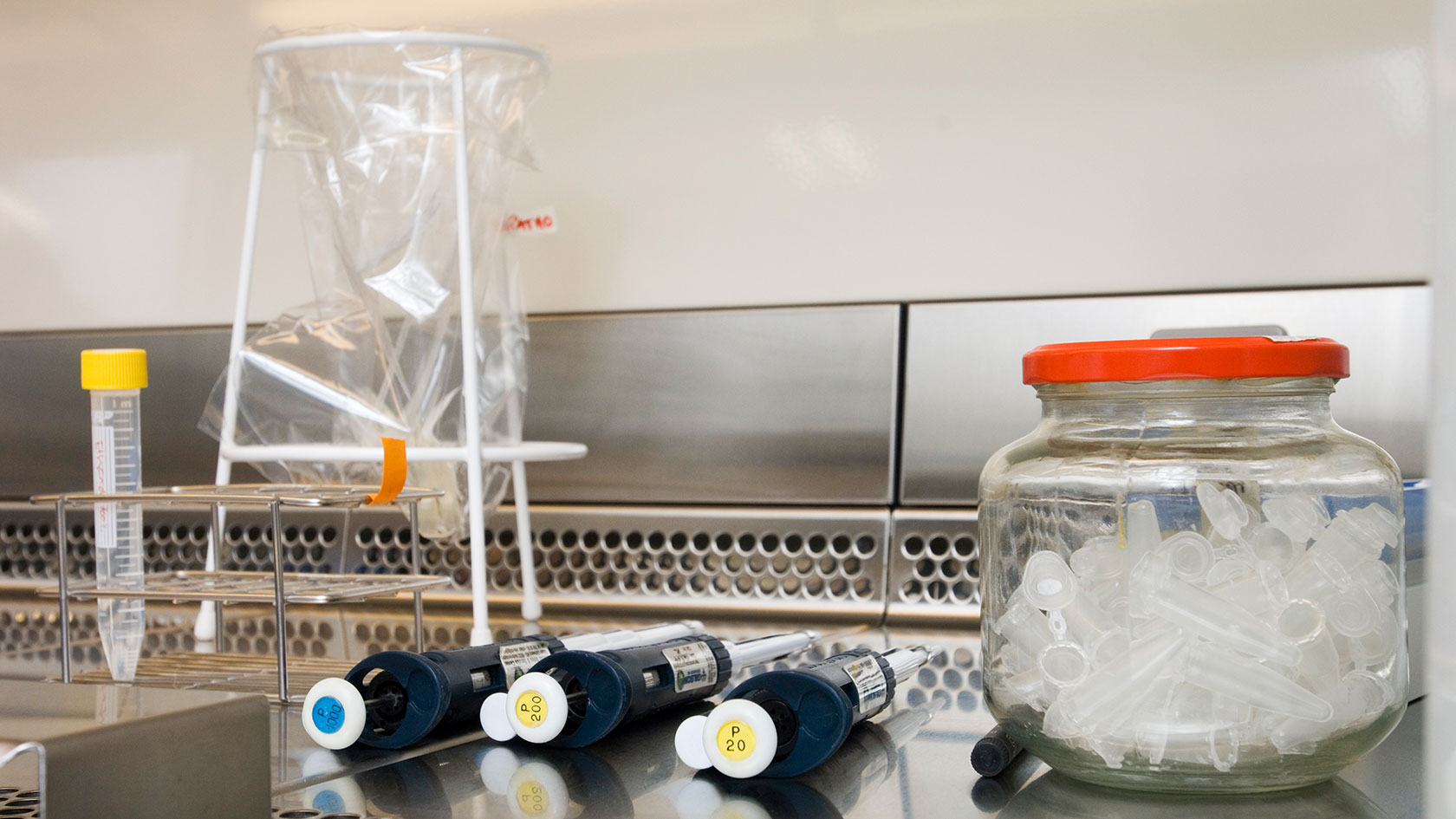UZH as Real-World Laboratory
The University of Zurich aims to become carbon-neutral by 2030. It contributes to sustainable development through a wide range of measures in its research, teaching and general operations, as well as in cooperation with wider society. Specific examples include the University Research Priority Programs in the areas of global change, ecosystems and biodiversity; the new biodiversity course program which integrates sustainability skills into the regular curriculum; the transdisciplinary Sustainable Development and Transformation study week; the Sustainability Now! public lecture series; and the faculties' action plans to reduce greenhouse gas emissions caused by air travel.
Call for ideas
UZH is now boosting its existing sustainability efforts with a new funding instrument. At the beginning of this year, UZH members were asked to submit ideas for “real-world laboratory” projects to research how UZH can reduce its greenhouse gas emissions. “Our members can use UZH as a real-world laboratory for our members to test innovative measures for sustainable operations. In this way, we are supporting interdisciplinary and transdisciplinary research approaches in the field of sustainability,” says Elisabeth Stark, Vice President Research.
Combining research with practice
This concept means UZH itself becomes an object of research. One crucial aspect is that researchers need to work together with technical or administrative staff. For many, this is a new idea. “To achieve UZH’s carbon-neutral target, we need to rethink existing processes and habits. The real-world laboratory projects combine research and practice and thus help us understand which measures actually contribute to a reduction in climate-damaging emissions,” explains Gabriele Siegert, Deputy President and Vice President Education and Student Affairs.
UZH Sustainability Delegate Lorenz Hilty also welcomes this forward-looking approach of linking research and operational processes: “This way, we will learn to apply scientific findings within the university and at the same time gain knowledge about our institution’s structures and processes.”
Significant effects
A jury consisting of representatives from the faculties and Central Services reviewed the submissions. Of the eight projects submitted, six were selected for best meeting the criteria because, among other things, they are expected to significantly reduce greenhouse gas emissions, are based on transdisciplinary research, and could potentially be adopted by other UZH organizational units or external institutions.
- The RED-UZH project team evaluates the measures selected by the faculties to reduce flight-related GHG emissions. It investigates how well these measures are accepted, how effective they are and the extent to which they influence travel behavior. Based on this information, the team develops recommendations for improving the measures and their implementation.
UZH units involved: Department of Political Science, Office of the Dean of the Faculty of Arts and Social Sciences
- The AWAIR project also investigates flight-related GHG emissions. Specifically, the project team is developing an early warning system to monitor the annually defined emissions target. The findings will be used to support UZH institutes and departments when planning air travel, and to raise awareness among staff and students.
UZH units involved: Department of Political Science, Office of the Dean of the Faculty of Arts and Social Sciences
- The Green4Clim project uses Irchel Campus as a real-world laboratory. The project team uses complex measurements and experiments to investigate how the vegetation on campus should be managed – on the one hand to extract as much climate-damaging carbon dioxide from the atmosphere as possible, and on the other to better cool the buildings and thus reduce energy consumption.
UZH units involved: Department of Geography, Facility Management Irchel Campus
- Every year, dozens to hundreds of disposable plastic pipettes per person are disposed of in UZH laboratories. The aim of the Tip Wash project is to implement a standardized process for cleaning pipette tips with a special device, thus enabling multiple use. The project also examines the legal issues, work processes and biosecurity.
UZH units involved: Department of Plant and Microbial Biology, Department of Systematic and Evolutionary Botany
- Computed tomography (CT) scanners are essential for modern radiology, but they require a great deal of electricity. The Environmental Sustainability in CT project team is researching how to optimize energy consumption of CT scanners during periods of low utilization.
UZH units involved: Institute of Forensic Medicine
UZH is supporting these five real-world laboratory projects to the tune of around CHF 228,000. The amount of funding varies depending on the project: “In addition to pioneering projects that directly reduce emissions, we also wanted to support smaller projects that make it easier to monitor developments or make decisions,” explains Lorenz Hilty. The funded projects will last for between six and 24 months. Initial results are expected by the middle of next year. For a detailed description of the real-world laboratory projects and the involved parties, visit the website.

